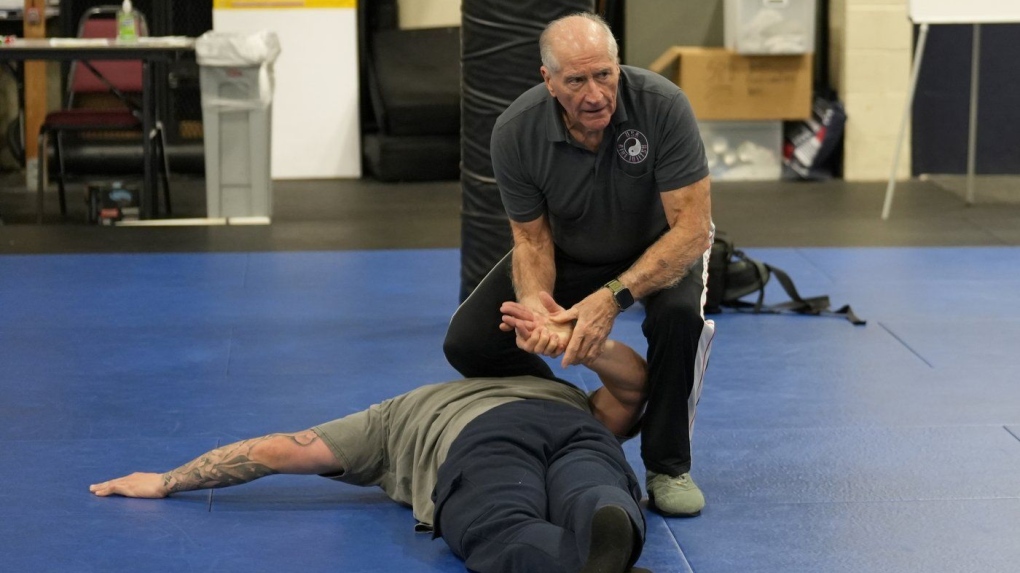
Risks of handcuffing someone facedown long known; people die when police training fails to keep up
CTV
For decades, police across the United States have been warned that the common tactic of handcuffing someone facedown could turn deadly if officers pin them on the ground with too much pressure or for too long.
For decades, police across the United States have been warned that the common tactic of handcuffing someone facedown could turn deadly if officers pin them on the ground with too much pressure or for too long.
Recommendations first made by major departments and police associations culminated in a 1995 federal safety bulletin that explained keeping someone on their chest in what’s known as prone restraint can dangerously restrict breathing. The solution: Once cuffed, turn them onto their side.
Yet today, what some officers are doing on the street conflicts with what has long been recognized as safe, a deadly disconnect that highlights ongoing failures in police training, an Associated Press investigation has found.
The cases involving prone restraint are among more than 1,000 AP documented over a decade of people who died not by gunshot but after officers used force that is not meant to kill. In all, at least 740 of these encounters involved prone restraint, making it the most prevalent tactic. It was also commonly misapplied.
In about half of the 740 cases, officers continued to pin someone down after handcuffing, often pressing with knees or hands when the person was controlled. That included people especially susceptible to the risks of prone restraint — those who were obese, impaired by drugs or had a medical condition.
Many people were held down longer than five minutes. In the extreme, at least 13 were down for 10 minutes or more — longer than George Floyd, whose 2020 death thrust policing back into the national conversation. Other cases involved police lying across, sitting or even standing on someone’s back.
Training that is ineffective, or that contradicts longstanding best practices, happens in part because policing in the U.S. lacks a national rulebook. The federal government’s 1995 guidance that warns against pressing someone down is just that — guidance, not the law.
